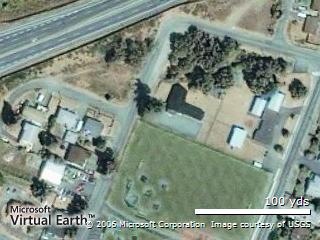A recent Piper article is eating away at my mind. I really am appalled by it, but have hesitated to post. It is quite easy to be too critical, especially when it comes to eminently critique-able people like Piper.
The article, Gutsy Guilt, was published in the October issue of Christianity Today. In order to understand my criticism, you may have to read the article, but I will do my best to represent the article and what bothers me about it.
In his introduction, Piper expresses a concern that young Christians can lose their 'radical' vision for ministry because of failing to deal with the guilt of sexual failure. [BTW, Piper regularly uses words like 'radical' and 'passion', words that really have no place in a Christian context, but that is another pet peeve and another post.]
By failure, Piper doesn't mean merely the use of pornography. No, he says, "The great tragedy is not masturbation or fornication or pornography." I am assuming that he doesn't mean the adultery kind of fornication, but his article doesn't make that distinction clear.
Piper states that his aim in the article is not primarily to help someone gain victory over sexual sin, but rather to gain victory over being defeated or dissuaded from ministry because of sexual sin. He puts it this way:
I have a passion that you do not waste your life. My aim is not mainly to cure you of sexual misconduct. I would like that to happen. But mostly I want to take out of the Devil's hand the weapon that exploits your sin and makes your life a wasted, worldly success. Satan wants that for you. But you don't!
In fact, Piper assumes failure.
Yes, I want you to have the joyful courage not to do the channel surfing. But sooner or later, whether it's that sin or another, you are going to fall. I want to help you deal with the guilt of failure so that Satan does not use it to produce another wasted life.
The great tragedy that Piper seeks to win victory over is that someone who is guilty of some kind of sexual failure will be tempted by the failure to give up his 'radical' vision of ministry and instead will settle for 'the American dream', i.e., materialism.
Piper rightly warns that on account of these things [immorality and the like, Col 3.5-6] the wrath of God is coming. He points out that the Lord came to bring about forgiveness of sin, including these, and that our debts and legal obligations are cancelled if we believe in Christ. All true, of course!
After showing that our debts are nailed to the cross (Col 2.14) Piper points to Col 2.15 which says: "When He had disarmed the rulers and authorities, He made a public display of them, having triumphed over them through Him." Piper claims that the 'rulers and authorities' [i.e., demonic forces] cannot damn us because of the cross [true], then concludes that because of this the believer by faith fights against the accusing convicting sense of failure brought about by sexual misconduct and the accusations of demons. [Never mind that Col 2 is talking about asceticism, Jewish dietary laws, and other rituals, see Col 2.16-17.]
What is this fight Piper speaks of?
This faith will fight anything that gets between it and Christ. The distinguishing mark of saving faith is not perfection. It is not that I never sin sexually. The mark of faith is that I fight. I fight not with fists or knives or guns or bombs, but with the truth of Christ. I fight anything that diminishes the fullness of the lordship of Jesus in my life. I fight anything that threatens to replace Jesus as the supreme treasure of my life.
Ok... but what does this fight look like?
With this passionately embraced theology—the magnificent doctrines of substitutionary atonement and justification by faith (even if you don't remember the names)—you can conquer the Devil tomorrow morning when he lies to you about your hopelessness.
...
When I fall, I shall rise. Yes, I have fallen. I hate what I have done. I grieve at the dishonor I have brought on my King. But hear this, O my enemy, I will rise. I will rise.
When I sit in darkness, the Lord will be a light to me. Yes, I am sitting in darkness. I feel miserable. I feel guilty. I am guilty. But that is not all that is true about me and my God. The same God who makes my darkness is a sustaining light to me in this very darkness. He will not forsake me.
I will bear the indignation of the Lord because I have sinned against him, until he pleads my cause and executes judgment for me. Oh yes, my enemy, this much truth you say: I have sinned. I am bearing the indignation of the Lord. But that is where your truth stops and my theology begins. He—the very one who is indignant with me—will plead my cause. You say he is against me and that I have no future with him because of my failure. That's what Job's friends said. That is a lie. And you are a liar. My God, whose Son's life is my righteousness and whose Son's death is my punishment, will execute judgment for me. For me! And not against me.
He will bring me out to the light; I shall look upon his vindication. This misery that I now feel because of my failure, I will bear as long as my dear God ordains. And this I know for sure—as sure as Jesus Christ, the Son of God, is my punishment and my righteousness—God will bring me out to the light, and I will look upon his righteousness, my Lord and my God. [italics Piper's, underlining mine]
As I consider this suggested approach, I wonder where the fruit of the Spirit is. I wonder where is the humility, repentance, shame, conviction, and true victory. I wonder what to do with the instructions of Eph 4.1-2 where the apostle calls us to walk "with all lowliness and meekness..." Yes, James calls us to 'resist the devil', but how? By humility and submission to God (Jas 4.6-7).
Piper's idea seems to be that if I have my theology right, if I know how to think right about Christ and what he has done, then I can defy Satan. Defiance is different from resistance.
It is important to think right about what Christ has done! But is right theology and defiance of Satan the same as spiritual victory? Is there no need for repentance? No need for actual ... you know ... change?
Here is Piper's conclusion:
When you learn to deal with the guilt of sexual failure by this kind brokenhearted boldness, this kind of theology, this kind of justification by faith, this kind of substitutionary atonement, this kind of gutsy guilt, you will fall less often. Why is this so? Because Christ will become increasingly precious to you.
Best of all, Satan will not be able to destroy your dream of a life of radical obedience to Christ. By this Christ-exalting gutsy guilt, thousands of you will give your lives to spread a passion for the supremacy of God in all things for the joy of all peoples through Jesus Christ.
Wow... I will fall less often. There's a victory worth pursuing! Isn't it possible to get to 'such were some of you'? (1 Cor 6.11) Isn't it possible to put sinful habits behind us? Must we settle for 'good enough'? Is our only victory the victory of right theology that can snarl in the face of Satan [while falling less often]?
I am all for forgiveness and restoration of the repentant. I don't expect we men in the ministry will have perfectly unblemished lives, especially in our earlier years. But I do expect that we must maintain victory over sin. And there does come a point where persistent failure disqualifies permanently, does it not?
The Piperites will be only too ready to defend their hero. If any of them should read this, they will likely claim I misunderstand. But their hedonistic hero is the one who misunderstands. The great tragedy is that so many lap up this man's writing as if it were holy writ itself.
Regards
Don Johnson
Jer 33.3


